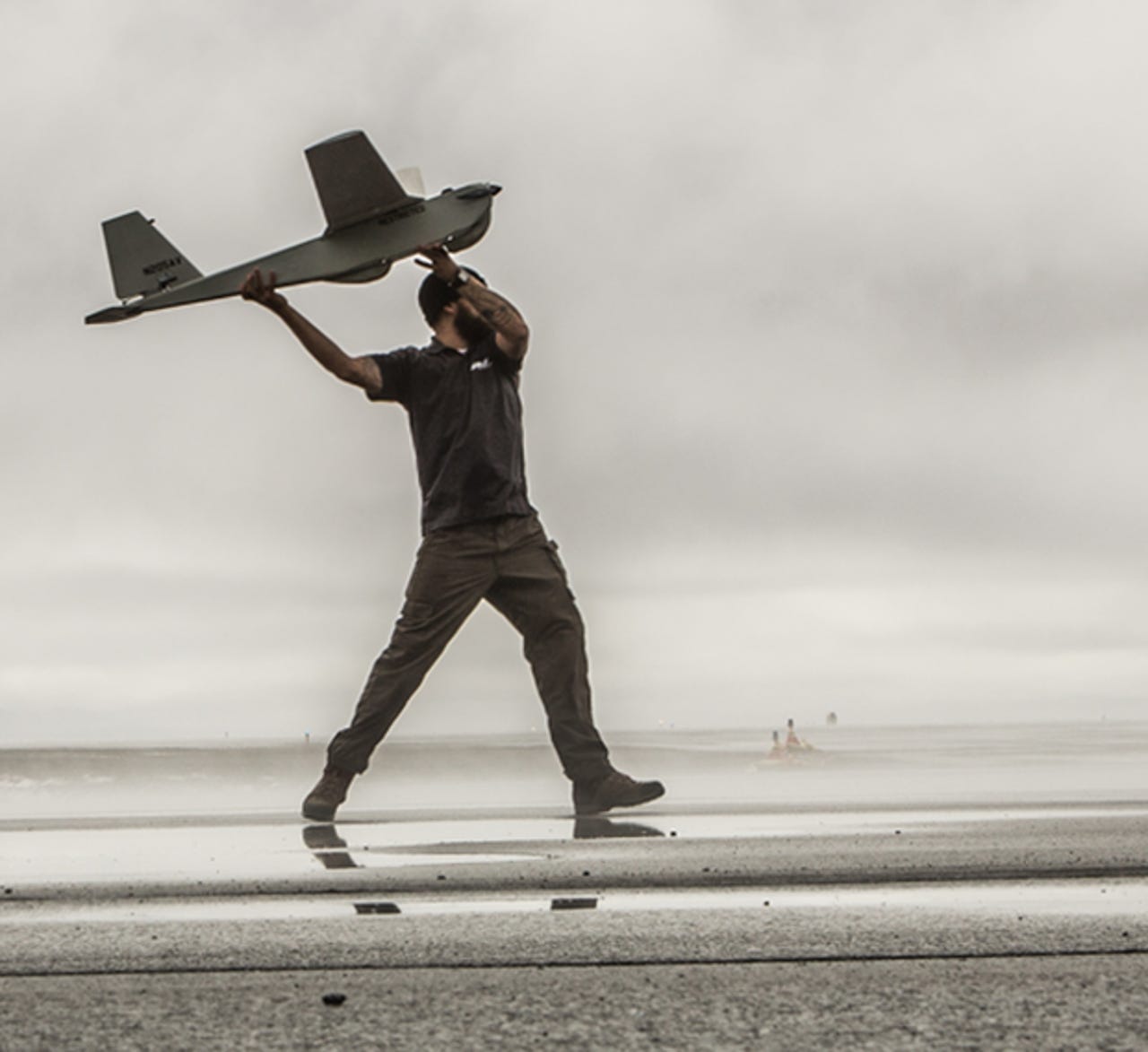Dronecode: Linux is taking to the air

Today, drones tend to run a variety of expensive, home-brew operating systems. Until recently drone ground control systems, such as those of the US Air Force, ran Windows. The first isn't efficient and the second proved prone to malware; so the Air Force switched to Linux. Given all this, it was only a matter of time until Linux would start flying in drones as well.

The Linux Foundation announced on October 13 at LinuxCon Europe the founding of the Dronecode Project. The goal of this project is to unify existing open-source drone projects and assets under a non-profit structure. Eventually, there will be a Linux-based platform for Unmanned Aerial Vehicles (UAVs). Perhaps they'll call it DroneX!
The project's founding members include 3D Robotics, Baidu, Box, DroneDeploy, jDrones, Laser Navigation, SkyWard, Squadrone System, Walkera and Yuneec. The Dronecode program will include former Wired editor-in-chief Chris Anderso's 3D Robotics' APM UAV autopilot. It will also incorporate the PX4 project open-source autopilot.
Notably absent from Dronecode's supporters is Airwave. This company is a well-funded startup that's been working on its own universal drone operating system. Airware’s operating system, due out later this year, is meant to be a soup-to-nuts UAV software solution — from autopilot to navigation, software to cloud storage — for drone sensor data.
Dronecode, however, already has more than 1,200 developers working the project. The platform is also being adopted by many of drone companies such Skycatch, DroneDeploy, HobbyKing, Horizon Ag, PrecisionHawk, Agribotics, and Walkera.
Featured
The project's technical side is being headed by Andrew “Tridge" Tridgell. He is a ArduPilot Mega lead maintainer best known for his work as the author of the Samba file and print server.
So, why are top open-source developers getting involved in drones? Well, for starters, there's the maker's delight in the cool factor.
As Anderson wrote in a Dronecode blog posting, "This is the culmination of a half-lifetime of work on open innovation and in particular a seven-year journey in drones that started with my children and me experimenting with Lego Mindstorms robotics parts and RC airplanes back in early 2007 (I love that first video we shot, shaky as it was; it was a life-changing moment)."
Today, Anderson continued, "We have reached [a] level of adoption and maturity, [where] it’s time to adopt the best practices of other highly successful open source projects … to ensure the continued growth and independence of [UAV] efforts."
Then, of course, there's the money.
The Teal Group, an aerospace research firm, recently estimated that within a decade the total amount spent worldwide on research, development, testing and evaluation of drone technology will reach $91 billion. While the Federal Aviation Administration has been criminally slow in approving drone regulations — at this time technically almost no commercial use of drones is legal in the United States — the industry is clearly on the verge of an explosion.
As the Linux Foundation stated, and anyone in the UAV industry would agree, "From environmental research to wildlife conservation and search and rescue, drones are becoming recognized for a wide variety of uses beyond commercial and defense applications. Furthermore, the opportunities drones provide for data analysis, storage and display open up a world of possibilities for application in business. Hundreds of thousands of developers and makers around the world today are contributing to drone technology and this future. The Dronecode Project will help advance these technologies and accelerate adoption of better, more affordable and more reliable open-source software for UAVs."
By proving a common, open-source platform for drones, Dronecode will, as Jim Zemlin, executive director at The Linux Foundation, said in a statement, "receive the support required of a massive project right at its moment of breakthrough. The result will be even greater innovation and a common platform for drone and robotics open-source projects.”
Want to know more? The Dronecode Project is open for coding today.
Related Stories:
- Amazon unveils Drone Store, tells users to 'Fly responsibly'
- AirDog auto-follow drone for GoPro smashes Kickstarter targets
- Game of drones: Google readies Project Wing against Amazon's Prime Air
- It’s a bird, it’s a plane….it’s India's first pizza-delivering drone!
- Google reportedly buying another drone maker: Titan Aerospace